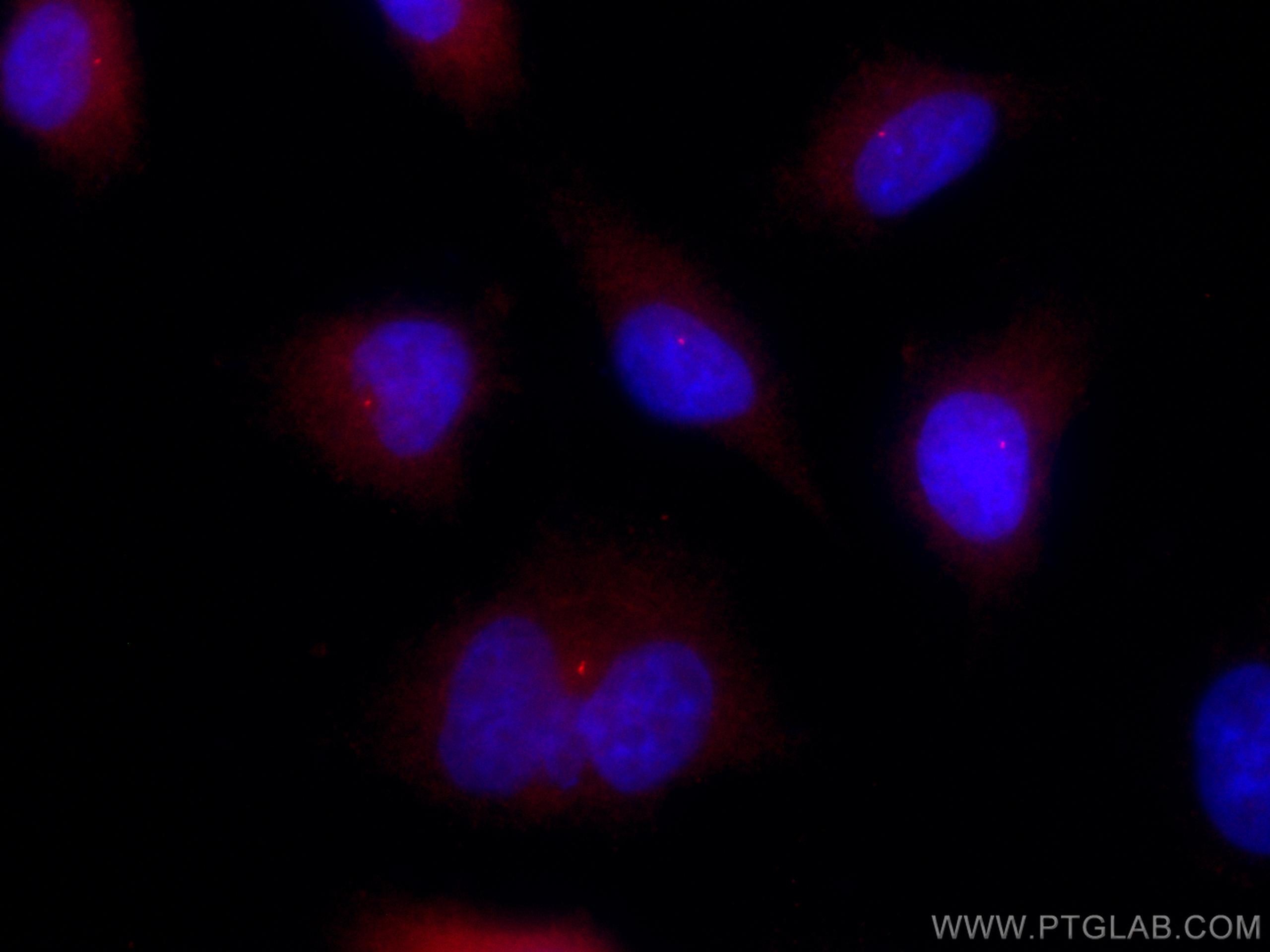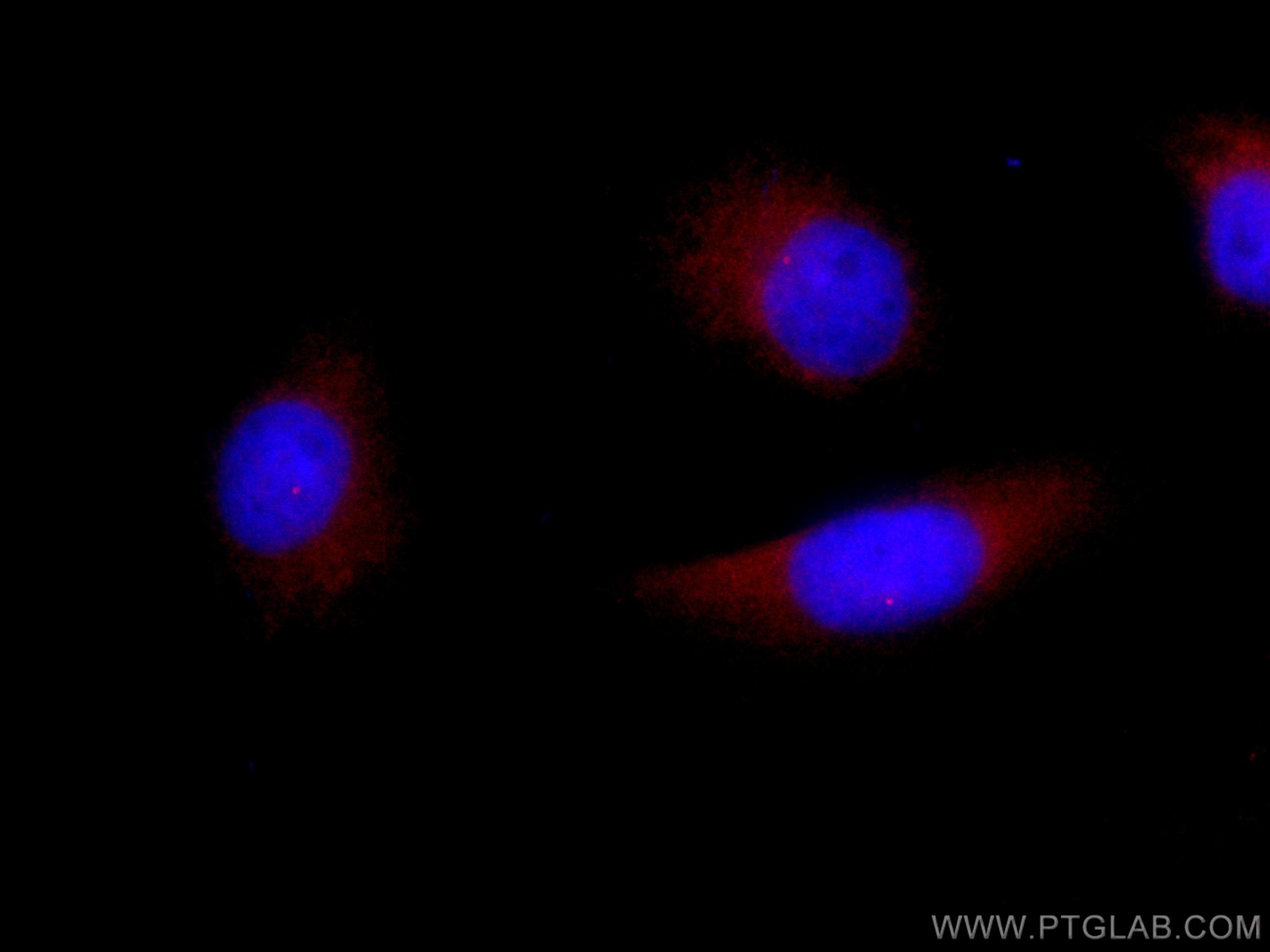- Featured Product
- KD/KO Validated
FBF1 Polyklonaler Antikörper
FBF1 Polyklonal Antikörper für IF
Wirt / Isotyp
Kaninchen / IgG
Getestete Reaktivität
human, Maus
Anwendung
IF
Konjugation
CoraLite®594 Fluorescent Dye
Kat-Nr. : CL594-11531
Synonyme
Galerie der Validierungsdaten
Geprüfte Anwendungen
| Erfolgreiche Detektion in IF | A549-Zellen, HUVEC-Zellen |
Empfohlene Verdünnung
| Anwendung | Verdünnung |
|---|---|
| Immunfluoreszenz (IF) | IF : 1:50-1:500 |
| It is recommended that this reagent should be titrated in each testing system to obtain optimal results. | |
| Sample-dependent, check data in validation data gallery | |
Produktinformation
CL594-11531 bindet in IF FBF1 und zeigt Reaktivität mit human, Maus
| Getestete Reaktivität | human, Maus |
| Wirt / Isotyp | Kaninchen / IgG |
| Klonalität | Polyklonal |
| Typ | Antikörper |
| Immunogen | FBF1 fusion protein Ag2106 |
| Vollständiger Name | Fas (TNFRSF6) binding factor 1 |
| Berechnetes Molekulargewicht | 1133 aa, 125 kDa |
| Beobachtetes Molekulargewicht | 130 kDa |
| GenBank-Zugangsnummer | BC023549 |
| Gene symbol | FBF1 |
| Gene ID (NCBI) | 85302 |
| Konjugation | CoraLite®594 Fluorescent Dye |
| Excitation/Emission maxima wavelengths | 588 nm / 604 nm |
| Form | Liquid |
| Reinigungsmethode | Antigen-Affinitätsreinigung |
| Lagerungspuffer | BS mit 50% Glyzerin, 0,05% Proclin300, 0,5% BSA, pH 7,3. |
| Lagerungsbedingungen | Bei -20°C lagern. Vor Licht schützen. Aliquotieren ist bei -20oC Lagerung nicht notwendig. 20ul Größen enthalten 0,1% BSA. |
Hintergrundinformationen
FBF1, also named as ALB and KIAA1863, is keratin-binding protein required for epithelial cell polarization. It is involved in apical junction complex (AJC) assembly via its interaction with PARD3. FBF1 is required for ciliogenesis. FBF1 has six isoforms with MW 125-127 kDa, 99 kDa, 69 kDa and 55 kDa. This antibody is induced by N-terminal (20-347aa) of FBF1. It recognizes all the six isoforms.
Protokolle
| Produktspezifische Protokolle | |
|---|---|
| IF protocol for CL594 FBF1 antibody CL594-11531 | Protokoll herunterladen |
| Standard-Protokolle | |
|---|---|
| Klicken Sie hier, um unsere Standardprotokolle anzuzeigen |



